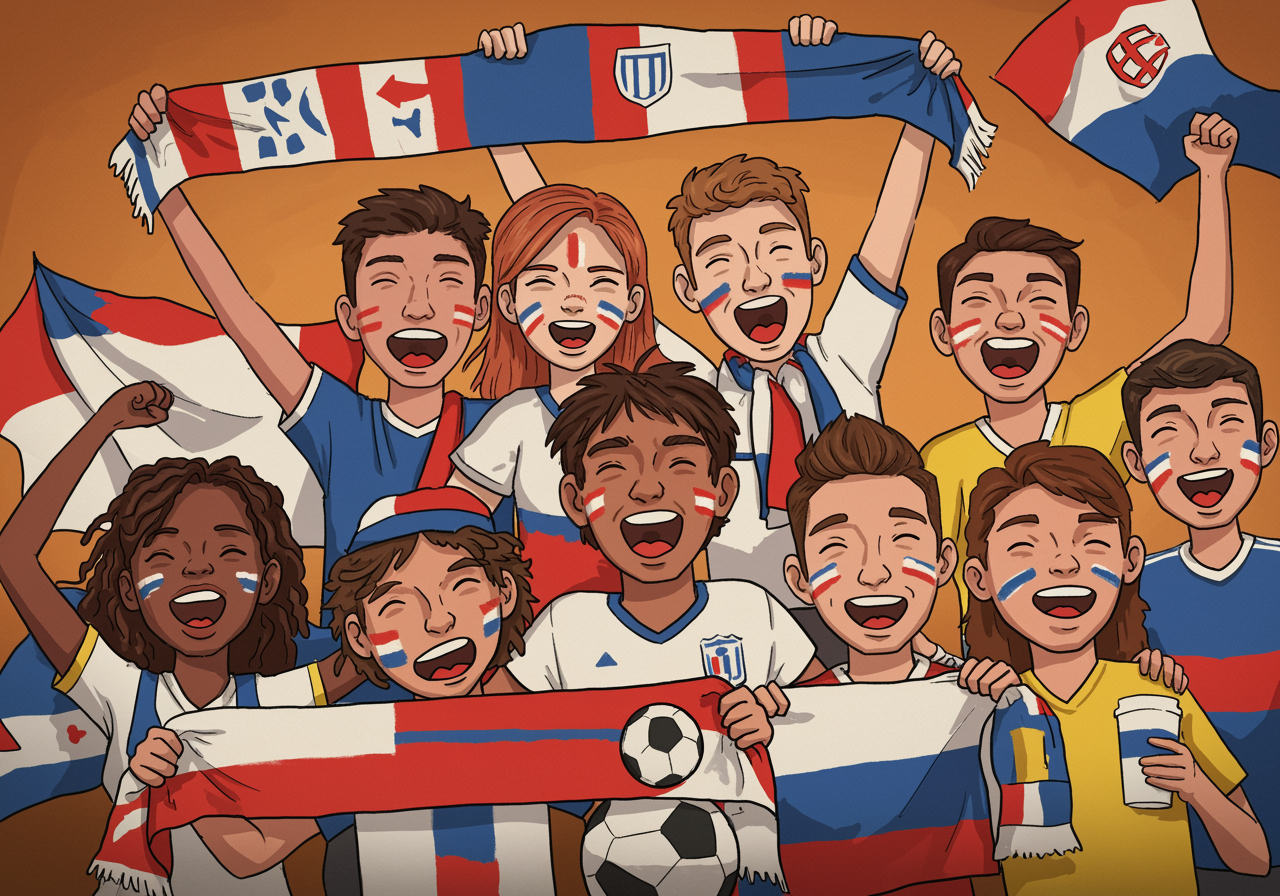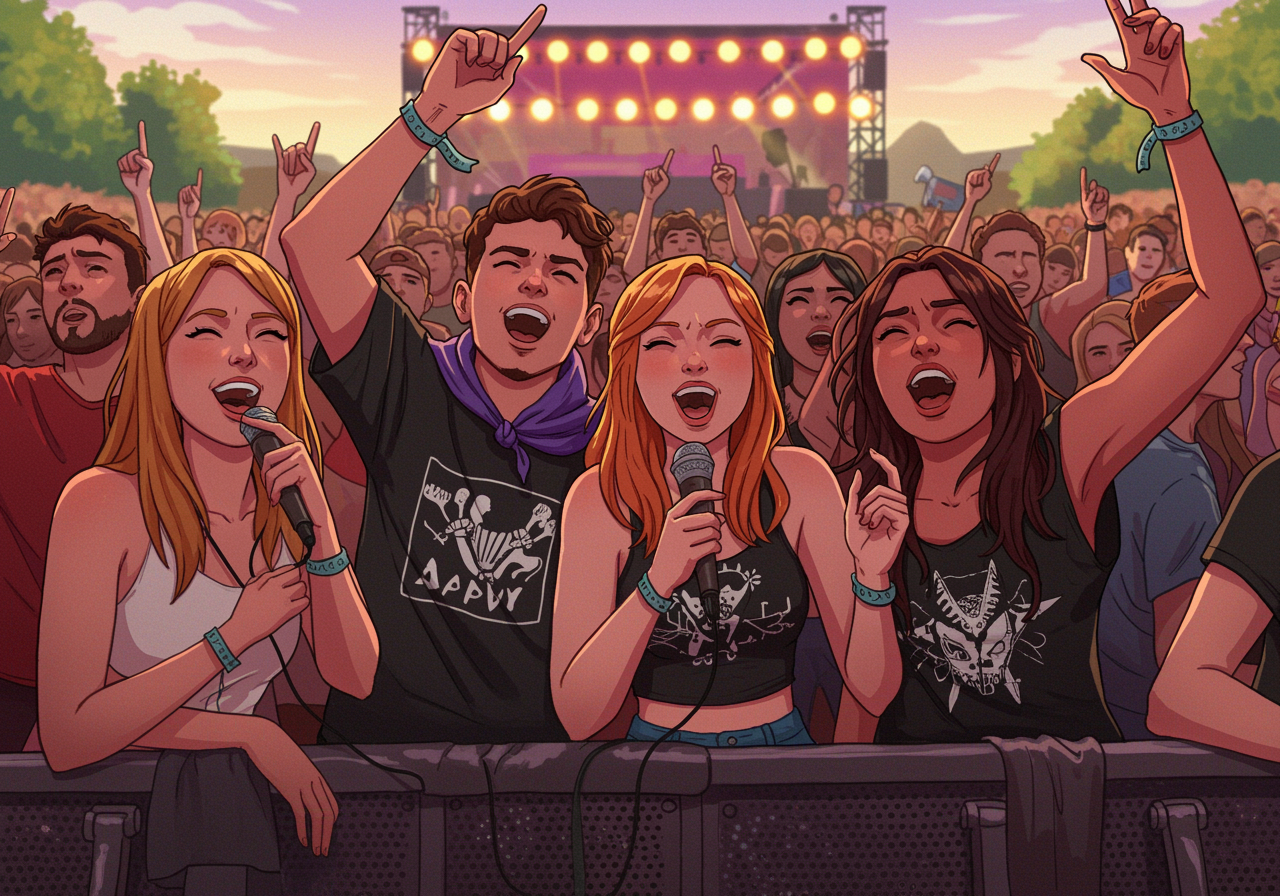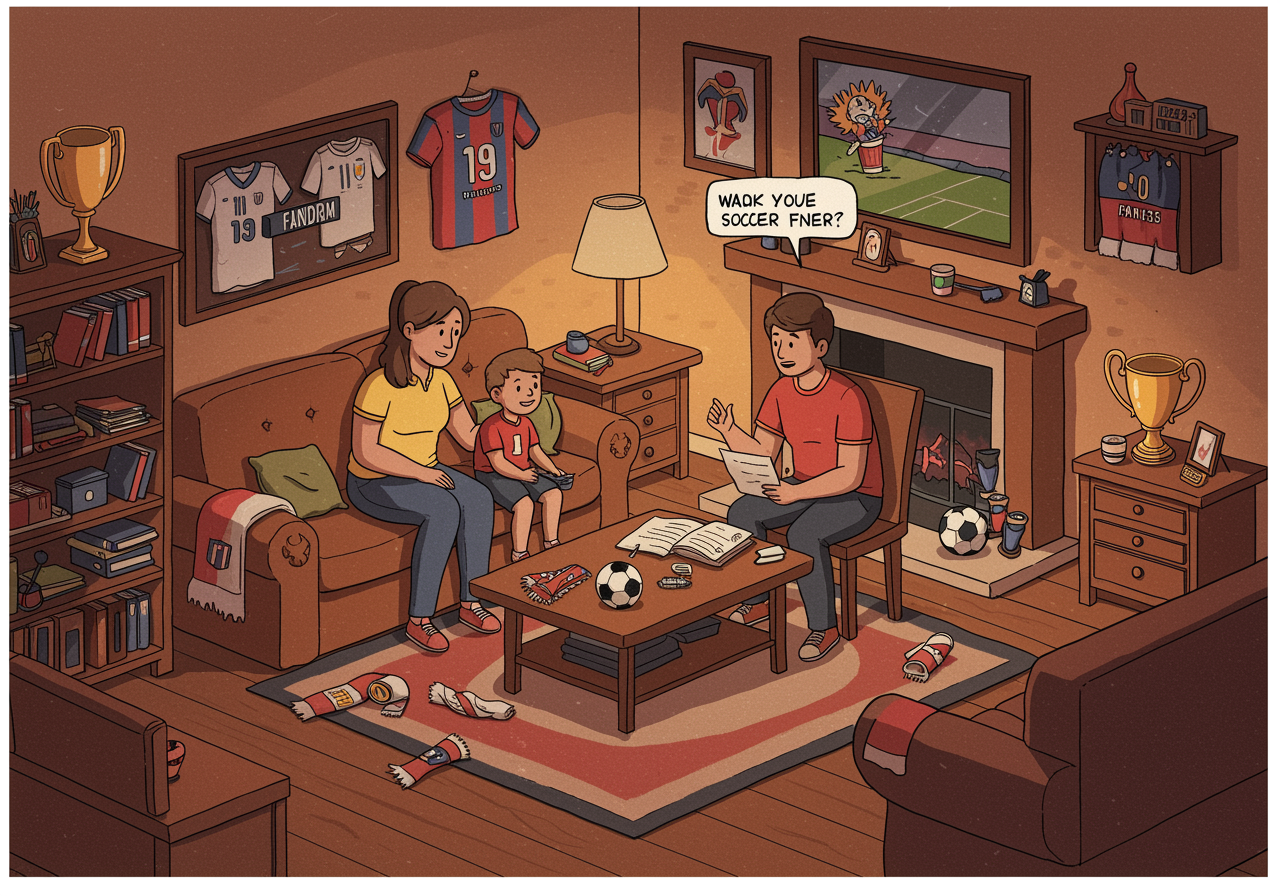The Amazing Science of Soccer Fandom: Why We Go Wild for Our Teams!
Discover the fascinating psychology behind why soccer fans paint their faces, sing at the top of their lungs, and never give up on their teams
Ever wonder why soccer fans get SO excited about their teams that they’ll travel across the world, paint their faces, and sing until they’re hoarse?
Overview
Soccer fandom isn't just about the game – it's about something much deeper that connects to how our brains are wired! When your teen gets obsessed with a favorite band, video game, or TikTok creator, the same psychological forces are at work that make soccer fans paint their faces and travel thousands of miles to support their teams. Understanding fan passion helps kids recognize how powerful our need for belonging and identity can be, and how we naturally form 'tribes' around shared interests. This conversation can help your teen think critically about their own fandoms while appreciating the beautiful human need for community and connection.

Understand in 30 Seconds
Get up to speed quickly
- We're Wired for Tribes: Humans naturally form groups around shared interests – soccer teams become modern 'tribes' that give fans a sense of belonging and identity.
- Emotional Investment Creates Passion: The more time, energy, and emotion fans put into following their team, the more passionate they become – just like any relationship!
- Shared Experiences Bond People: Celebrating victories and surviving defeats together creates powerful memories and friendships that last a lifetime.
- Heroes Inspire Us: Soccer players become role models who show fans what's possible through hard work, dedication, and never giving up on dreams.
Real Life Scenario
Situations you can relate to
Imagine your favorite band is performing in your city for the first time in five years. You've been listening to their music since middle school, know every lyric, and even learned guitar because of them. When concert day arrives, you wear their t-shirt, meet up with friends who love them too, and sing along with thousands of other fans. Why does this feel so amazing? It's the same reason soccer fans go crazy for their teams! You're part of something bigger than yourself, sharing an emotional experience with people who 'get it.' The band's songs soundtrack your memories, just like a soccer team's victories and defeats become part of a fan's life story. When your favorite player scores or your band plays your favorite song, your brain releases the same happy chemicals that make you feel connected and alive!

Role Play
Spark a conversation with “what if” scenarios
What if your school suddenly became famous worldwide and everyone wanted to wear your school colors?
- Role play: Act out being interviewed as a 'superfan' of your school, explaining why you're so proud and what makes your school special to outsiders who don't understand.
What if you had to convince someone from another planet why humans care so much about watching other humans kick a ball around?
- Role play: Take turns being the confused alien and the passionate fan explaining the deeper meaning behind sports and competition.
What if your favorite content creator or influencer moved to your town and you could meet them?
- Role play: Role-play the excitement and nervousness of meeting someone you've followed for years, discussing why they mean so much to you.
FAQs
Frequently asked questions people want to know
Is it weird that people cry when their team loses?
Not at all! When you're emotionally invested in something, your brain treats the team's success and failure like your own. Crying shows how much it means to you.
Why do fans sometimes fight with fans of other teams?
Our tribal instincts can sometimes go too far. While friendly rivalry is fun, true fans know that respect for opponents is what makes sports great.
Can being a fan actually affect your mood and health?
Yes! Studies show that fans' stress levels, heart rates, and even immune systems can be affected by their team's performance. That's how powerful the connection is!
Examples in the Wild
See how this works day to day
- During the 2022 World Cup, Argentine fans celebrated in the streets for days after their team won, with some fans getting tattoos of the victory date (ESPN World Cup Coverage)
- Liverpool FC fans created a 'wall of sound' by singing 'You'll Never Walk Alone' so loudly it could be heard from miles away during important matches (BBC Sport)
- Japanese fans stayed after their team's World Cup matches to clean up the stadium, showing how team values can inspire fan behavior (FIFA World Cup Reports)
- Leicester City's 2016 Premier League win against 5000-1 odds brought an entire city together, with fans celebrating like they'd won the lottery (The Guardian Sports)
In Summary
What you should know before you start
- Soccer fandom taps into our basic human need for belonging and tribal identity
- Emotional investment in teams creates genuine joy, heartbreak, and lifelong memories
- Shared experiences with other fans build strong communities and friendships
- Players become role models who inspire fans to pursue their own dreams and never give up
Pro-tip for Parents
You got this!
If your teen dismisses sports fandom as 'silly' or 'pointless,' connect it to their own interests first. Ask them about their favorite YouTuber, musician, or game – then draw parallels to show how soccer fandom uses the same emotional and social mechanisms. This helps them understand that all fandoms serve important psychological needs, whether it's K-pop, Minecraft, or Manchester United. The key is validating their passions while helping them see the universal human patterns underneath.

Keep an Eye Out For
Find these examples in everyday life
- Major soccer tournaments like the World Cup or European Championships when fan passion is at its peak
- Local team victories or defeats that show community reactions in your area
- Stories about athletes overcoming obstacles that demonstrate why players become inspirational figures to fans
Explore Beyond
Look up these related research topics
- The psychology of other fandoms – why do people love certain musicians, movies, or video games so intensely?
- How social media has changed the way fans connect with teams and players
- The positive and negative sides of competition – when does healthy rivalry become unhealthy?